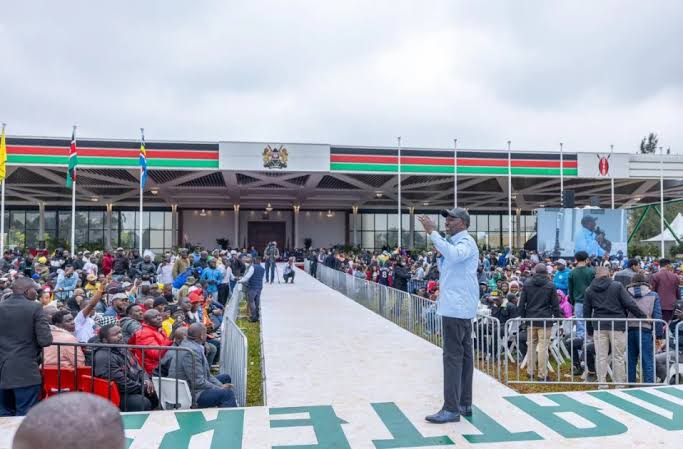What began as an exciting opportunity for many young Kenyans has now turned into a heated debate both online and offline.
On August 9, 2025, thousands of youths gathered at State House in Nairobi for an empowerment event that promised to provide them with tools such as motorcycles, car-washing machines, and sewing kits to help them start small businesses.
The gathering, hosted by President William Ruto, attracted around 15,000 people, with the intention of offering a practical boost to their economic prospects. While some walked away with real benefits, others claim their expectations were crushed.
Among the most talked-about accounts is that of a young man whose story spread quickly across social media. He recalled being photographed with a motorcycle and a bundle of items, believing they were his to take home.
According to him, he was told to collect them at the gate, but upon arrival, the police simply signaled for him to leave.
In a video shared on X, he appeared regretful, even asking fellow Kenyans to forgive him for believing in the process. Though he mentioned enjoying food and receiving an ID card at the event, the disappointment of leaving empty-handed overshadowed the day.
The public response has been mixed. Some find humor in the incident, saying they had warned people not to expect too much from such gatherings. Others are angry, arguing that such situations highlight the high levels of unemployment and desperation among young people in the country.
They believe that in some cases, intermediaries pretending to be officials may lure participants with promises of gifts or jobs, only for them to end up with nothing.
However, not every story from that day is negative. Many young people have shared photos and videos showing themselves riding away on new motorcycles or carrying equipment.
Just days later, on August 13, another group received boda bodas, with State House posting images of smiling recipients thanking the president. Still, questions remain over whether everyone was treated equally and whether some beneficiaries were asked to contribute large sums toward items that were meant to be free.
The incident comes against a backdrop of growing youth frustration in Kenya. Just last year, large protests led by Gen Z forced the withdrawal of a finance bill that would have increased taxes on everyday goods.
Although initiatives like the State House empowerment program are intended to bridge the gap between leaders and young citizens, critics say giving out small business tools is not enough to create meaningful change. They argue that more sustainable job opportunities in sectors like manufacturing and technology are needed.
Calls for greater transparency are growing louder. Activists want clear explanations about how such events are organized and why some people feel cheated.
Whether this controversy will push for better-run programs or fade away remains to be seen, but it has already reminded many that quick promises do not always lead to lasting solutions. For now, young Kenyans are being urged to be cautious, verify details before attending similar events, and push for deeper reforms that go beyond one-day giveaways.



